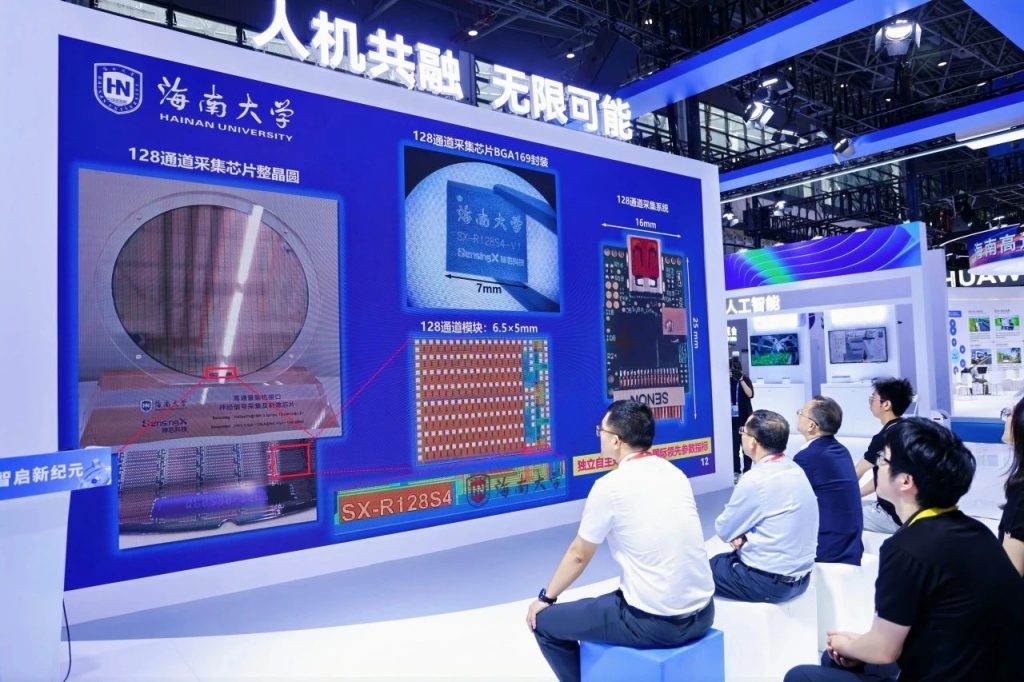China’s Hainan University unveils BCI-specific chips at CICPE, with core technology breaking dependence on imports

China’s Hainan University unveiled domestically developed core technologies and a series of products for implantable brain-computer interfaces (BCI), including globally leading BCI-specific chips, at the 5th China International Consumer Products Expo (CICPE) held from April 13 to Friday. With core technologies breaking dependence on imports, this also marks that China has achieved full-chain technological autonomy and control in the field of BCI, the Hainan University School of Biomedical Engineering announced on Friday via its official WeChat account.
The breakthrough will inject “Chinese chip” power into brain science research and medical applications. These technologies and products also include neural signal acquisition systems, neural signal modulation systems, and neuron positioning systems, according to the Hainan University School of Biomedical Engineering.
The team from the university has nearly 20 years of experience in the research and development of BCI chips and systems. They have developed several core chips for invasive BCI, with some of them achieving full-link coverage for the acquisition, regulation, and transmission of BCI signals, with performance comparable to leading international products. It has received high recognition from several research institutions and enterprises in the industry, according to the university.
The team leader said specialized chips are fundamental to the BCI system, and that the team has been dedicated to developing and refining these chips through independent innovation. The performance of these chips has reached an internationally advanced level, and the team aims to eliminate China’s reliance on imported invasive BCI chips and also support the growth of the Chinese BCI industry, said the team leader, according to the Hainan University School of Biomedical Engineering.
According to a report by a Hainan local media, a bionic manipulator showcased at the booth of Hainan University at the expo may in the future help some patients with partial paralysis. The device has already been tested in animal experiments, and it may take some time for the project to be implemented. Currently, they are in the process of applying for a patent, according to the report.